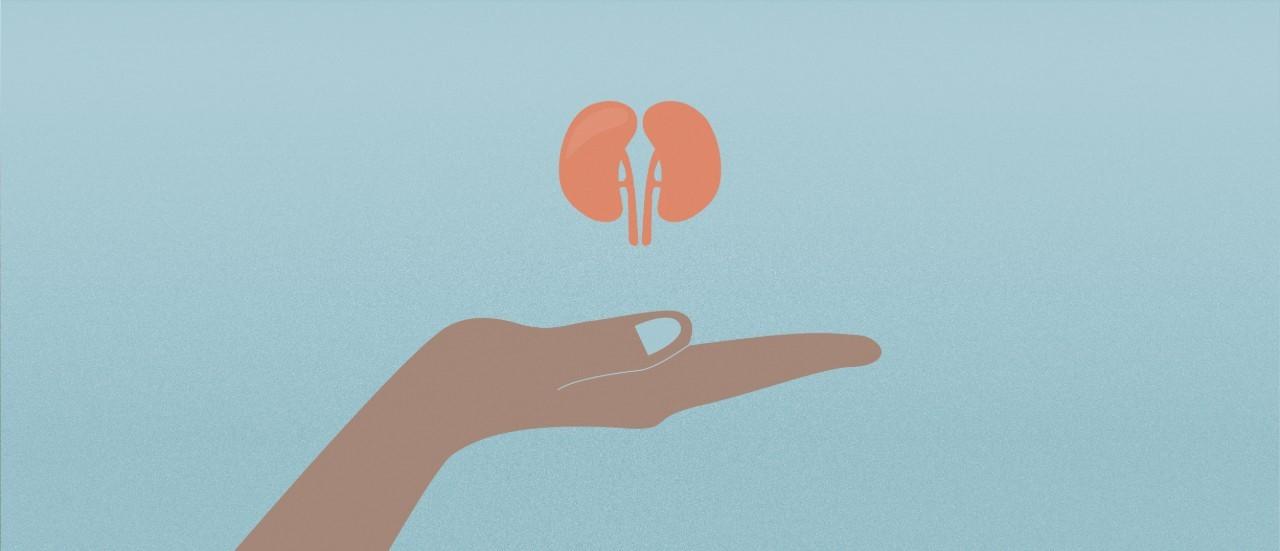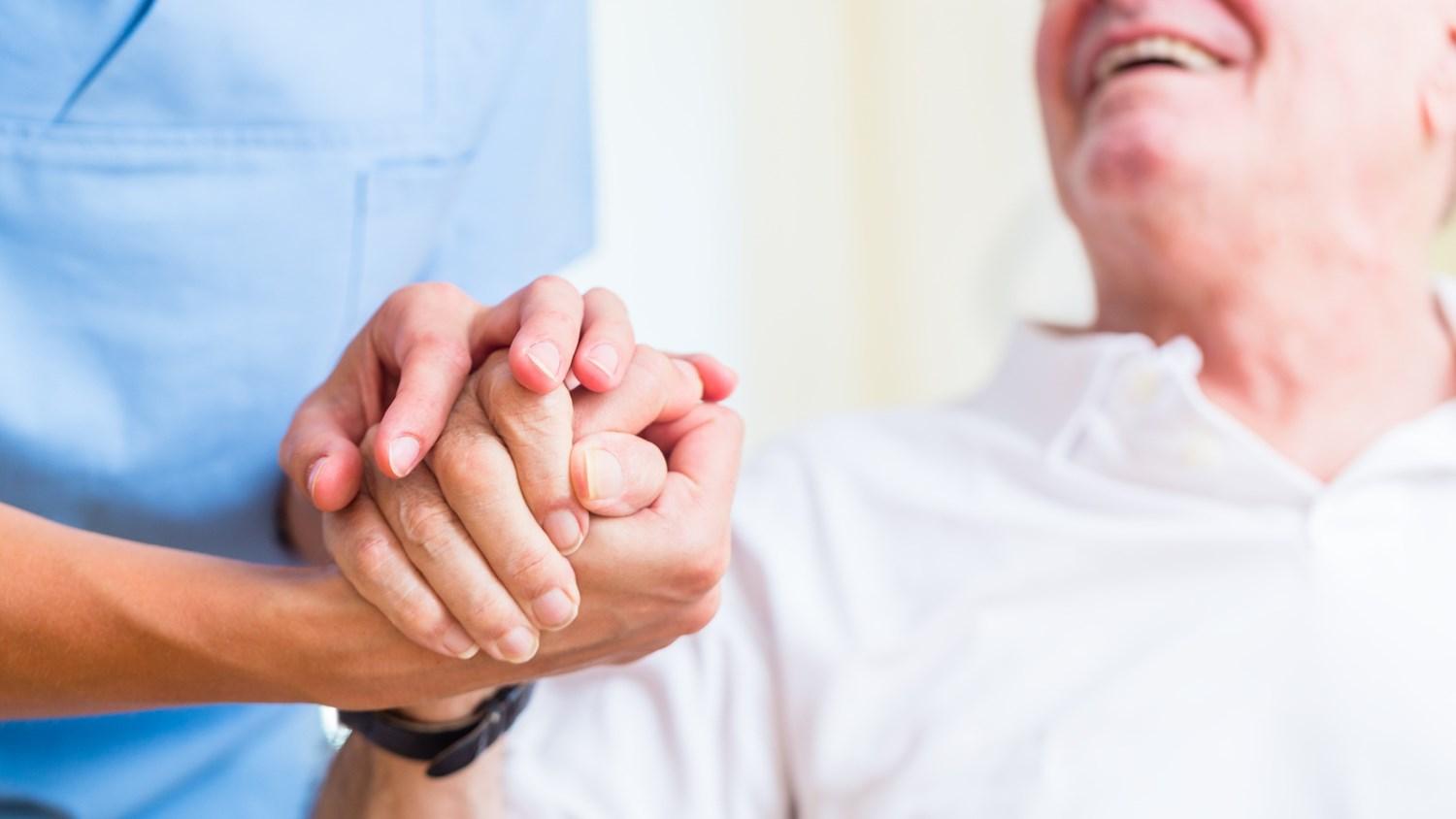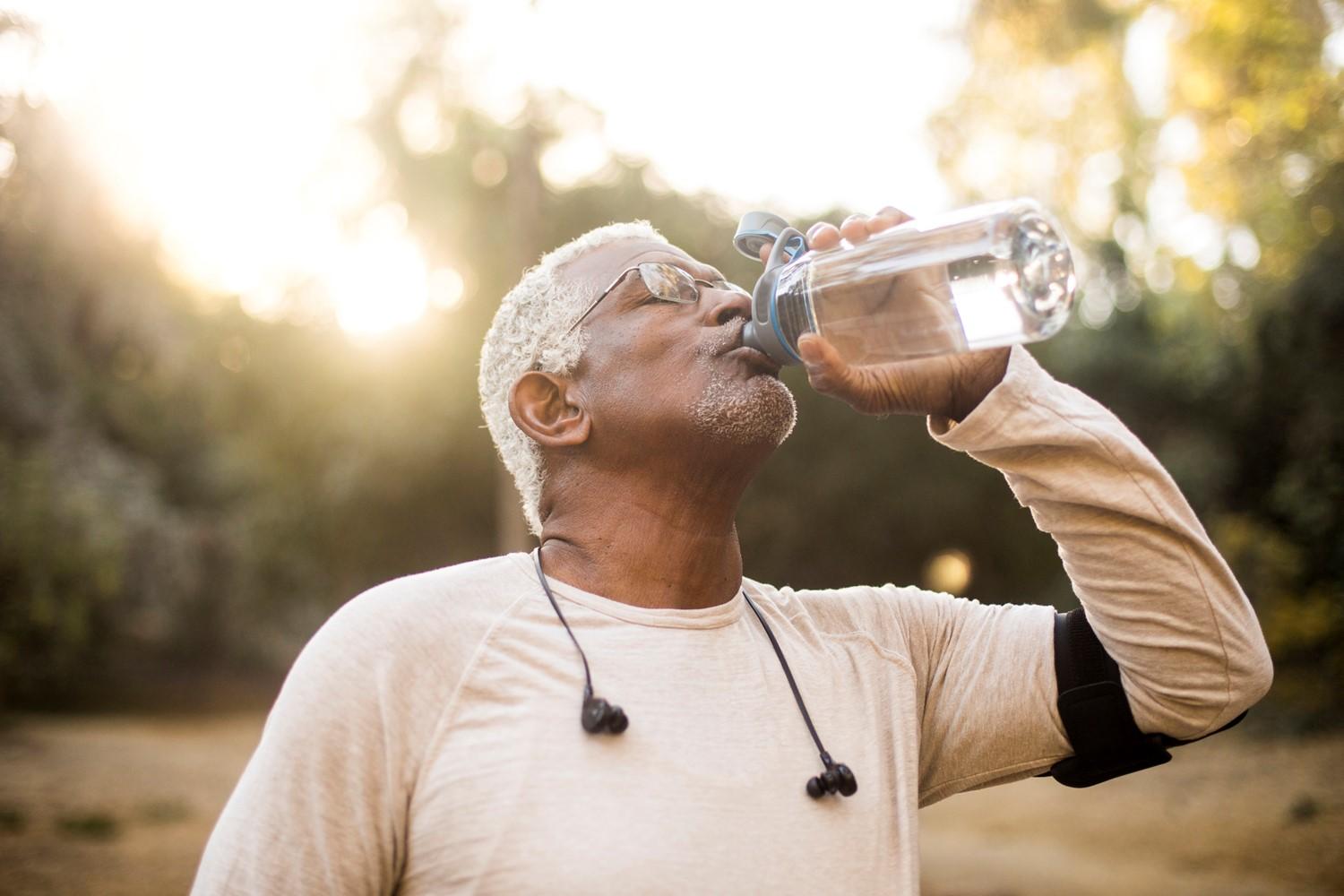
How to take good care of your kidneys
Peer reviewed by Dr Colin Tidy, MRCGPLast updated by Dr Sarah Jarvis MBE, FRCGPLast updated 26 Apr 2019
Meets Patient’s editorial guidelines
- DownloadDownload
- Share
- Language
- Discussion
I was amazed to discover from a recent survey that 50% of Britons don't know that their kidneys make urine. They play an essential role in filtering out waste our bodies produce - which is exactly why we need to look after them.
In this article:
All your blood passes through the kidneys 40 times every single day. Your kidneys act partly as a sieve. A million tiny filters called glomeruli stop blood cells and other essential body components leaving the bloodstream but pass fluid, waste products and medicines through.
Some of the things this first stage of your kidneys lets through are needed by your body - and it wants them back. Attached to each glomerulus is a long tube - your kidneys have a remarkable 140 miles of tubing. As fluid passes along these tubes, water is reabsorbed into your system. If you're dehydrated, more will be reabsorbed, so you pass less than the average three to four pints of urine a day. Levels of salts (like sodium and potassium) are also balanced out in the kidneys, and sugar is taken back into the blood too.
As if this weren't enough, your kidneys have even more jobs in their multi-tasking portfolio. They regulate your blood pressure, help control production of red blood cells, and activate vitamin D to keep your bones strong. All this is hard work - your kidneys use a quarter of your body's basic energy levels.
Can cystitis become a kidney infection?
Continue reading below
Kidney problems
Symptoms of serious kidney problems include feeling tired; headaches loss of appetite or feeling sick; muscle cramps; passing urine more or less often than usual; or swelling or numbness in hands and feet. Symptoms of acute damage to your kidneys include a major reduction in amount of urine, feeling or being sick, feeling 'hungover', feeling thirsty, or confusion. Always see a doctor if you have these symptoms.
However, you often won't know if you have kidney problems in the early stages. That's why it's important to get regular blood tests if your GP advises it, to keep an eye on how they're working.
As you get older, your kidneys don't filter as well as they used to. This often doesn't cause any problems, but your doctor may want to test your blood pressure, urine and blood regularly to keep an eye on them. It does mean that you're more prone to becoming ill if you get dehydrated, so it's essential to keep your fluid intake up.
Lots of older people are labelled as having 'chronic kidney disease', or CKD, because their eGFR (the estimated glomerular filtration rate, or the rate your kidneys filter fluid) is below a certain threshold. In fact, as long as it's only tailing off slowly, this is often a natural part of ageing.
While you need to take the precautions above, it's not necessarily a cause for concern. I have many patients with this diagnosis whose kidneys are working more than well enough, despite this label, to last them until they're over a century old. Speak with your GP if you've discovered you have been labelled as having CKD and are in doubt about what it means.
High blood sugar and high blood pressure can both damage your kidneys. If you have either of these conditions, it's essential to have regular checks and take any medicines your doctor prescribes regularly.
For instance, blood pressure-lowering medicines called ACE inhibitors (or ARBs) - they all have names ending in '-pril' or '-sartan' - specifically protect your kidneys as well as keeping blood pressure down. Keeping your blood sugar down if you have diabetes - with diet, exercise and medication - dramatically lowers the risk to your kidneys. High blood sugar significantly increases the risk of long-term kidney damage in both type 1 and type 2 diabetes.
However, there are other conditions which affect just the kidneys - among them glomerulonephritis and adult polycystic kidney disease. And there are also conditions such as lupus and Henoch-Schönlein purpura which can damage these organs.
What happens if my kidneys fail?
Without treatment, you couldn't live if your kidneys weren't filtering harmful waste and excess water from your body. So thank goodness for science!
More than 40,000 people in the UK live with kidney failure. Some have had a kidney transplant, but more than half have regular dialysis. There are two main kinds of dialysis - in the most common kind, haemodialysis, you spend about three four-hour sessions a week 'hooked up' to a machine that filters all the toxins from your body. Many people live for years on this regular treatment. Having a kidney replacement removes the need for dialysis but involves taking regular medicines to stop your body rejecting your kidney.
Continue reading below
Being kind to your kidneys
There are lots of ways you can look after your kidneys. Avoiding smoking, keeping your weight to healthy levels and exercising regularly will all protect them. So will reducing your intake of salt, including processed foods which are often high in hidden salt.
Some medicines can damage your kidneys. Others are filtered out of the body by your kidneys. This means if you have CKD, the levels might build up to dangerous levels. Your doctor will keep an eye on your tablets and may drop the dose or change some tablets if your kidney function drops. Most people don't come to harm with anti-inflammatory drugs like naproxen and ibuprofen, but in some people they're toxic to the kidneys. If you've been taking anti-inflammatory drugs for some time and your doctor suggests you should stop them, this may be why.
Keeping hydrated is also key. As a rule of thumb, healthy urine should be a pale straw colour. If it's much darker, you may be dehydrated. Being thirsty and a dry mouth are early warning signs to drink more. You can also suffer headaches, tiredness, dizziness and difficulty in concentrating. Older people may not feel as thirsty if they're dehydrated - so it's extra important to look out for warning signs.
About a quarter of your fluid comes from food, but you also need an 'average' of six to eight glasses of non-alcoholic fluid. Sugar-laden drinks are well known to increase your risk of weight gain and type 2 diabetes - and even sugar-free fizzy drinks have recently come under the spotlight. Tea and coffee both count towards your daily fluid intake as long as you don't go above 400 mg of caffeine - you get that from about four mugs of instant coffee or eight cups of tea. Above this level, they can have a diuretic effect, making you pass more urine and increasing the risk of dehydration.
If the weather's hot, or you're exercising or feverish, you'll need more. If you have a tummy bug, you also need to replace all the fluid you're losing from diarrhoea and vomiting, on top of these six to eight glasses.
With a bit of tender loving care, your kidneys should last you a lifetime.
Patient picks for Kidney

Kidney and urinary tract
Kidney dialysis treatment options
Kidney Research UK has published a comprehensive dialysis decision aid booklet, providing information and support to patients approaching kidney failure, to help make an informed decision about which type of dialysis treatment is right for them. The booklet was developed through a Kidney Research UK supported study by the Yorkshire Dialysis Decision Aid (YoDDA) research team in collaboration with Baxter Healthcare Ltd, the British Renal Society and the Renal Association.
by Danny Chadburn

Kidney and urinary tract
What do kidneys do?
The kidneys clear waste materials from the body and maintain a normal balance of fluids and chemicals in the body. They also help to control your blood pressure, make certain hormones and regulate the acidity of your blood.
by Dr Laurence Knott
Continue reading below
Article history
The information on this page is peer reviewed by qualified clinicians.
26 Apr 2019 | Latest version
26 Apr 2019 | Originally published

Ask, share, connect.
Browse discussions, ask questions, and share experiences across hundreds of health topics.

Feeling unwell?
Assess your symptoms online for free
Sign up to the Patient newsletter
Your weekly dose of clear, trustworthy health advice - written to help you feel informed, confident and in control.
By subscribing you accept our Privacy Policy. You can unsubscribe at any time. We never sell your data.